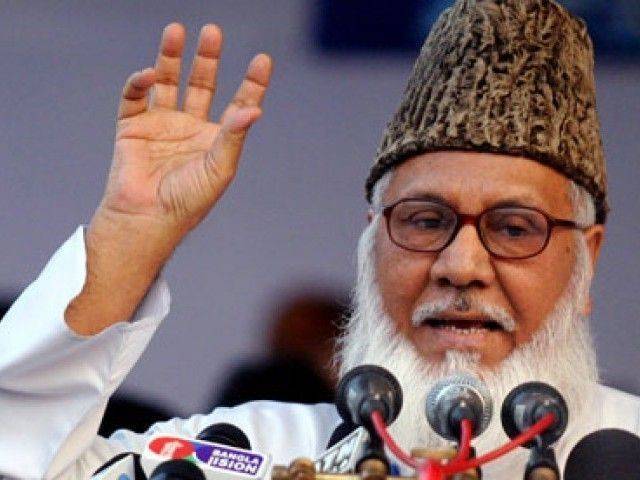
Why did the revolt in East Pakistan turn so bloody? Why is Prime Minister Sheikh Hasina Wajed the brainchild and political force behind the war crimes trials? Is the JI being rightly prosecuted? And has Pakistan (barring the emotional context) got anything to do with what goes on internally in Bangladesh now?
Being the more populous part of the country, East Pakistan was always a victim of economic and cultural neglect — more impoverished than its other half. It was only after it was denied participation in the country’s power structure (President Yahya announced indefinite postponement of the National Assembly session) that East Pakistan realised the true extent of its segregation (not just physical) from the other half. Who killed whom in 1971 should not be the question here — the real question is why was a political settlement avoided and a military approach adopted that resulted in violence and bloodshed? The question shouldn’t be whether non-Bengalis killed Bengalis or vice versa or who killed whom first; we need to question why innocent human blood was allowed to be shed on the streets of East Pakistan just because the leadership at the top failed to take timely and right decisions. The two sane voices in Dhaka representing West Pakistan in 1971 were those of the military governor of East Pakistan, Admiral S M Ahsan and military commander Eastern Command Lt General Sahibzada Yaqoob Ali Khan — both were against a military solution to a political problem. Unfortunately, both were not heard and both resigned, and ultimately we saw a bloody revolt in East Pakistan and Bangladesh’s formation.

Sheikh Hasina Wajed, daughter of Sheikh Mujibur Rahman, has a political career spanning over 40 years. After winning the parliamentary elections in January 2014, she became the prime minister of Bangladesh for the third time. Besides this, she has been the leader of the opposition from 2001 to 2006. She lost her father and almost her entire family who were assassinated in Dhaka in 1975 (Sheikh Hasina and her sister escaped as they were in Germany). During her first term as prime minister, she repealed the indemnity act (which prevented the conspirators from being tried in a court of law) passed by the previous government and started the trial of those officers involved in the assassinations. Those against whom the Supreme Court gave the verdict were hanged in 2010. The same year, she established the International Crimes Tribunal which so far has sentenced over a dozen people, including those from the JI and the Bangladesh National Party. The hanging of Nizami is a link in this same chain. One can question the quality of justice that is being meted out at these trials, and for many in Pakistan, all this may be viewed as a personal vendetta. But for many in Bangladesh, including Sheikh Hasina Wajed, it may be all about finally achieving justice.
After Bangladesh gained independence, the JI leadership was banned and most of its leaders went into exile. It was only after the 1975 military coup, which brought Major General Ziaur Rahman to power, that the ban was lifted and many JI leaders returned. Some of these leaders, including Nizami, became ministers in the two BNP-led regimes (1991-96 and 2001-2006). However, in the parliamentary elections held in 2008, the JI won only two seats in the 300-member parliament. It’s the people’s power that took the JI to parliament and it is the people’s power that prevented it from returning to the power corridors in 2008. I know that there are allegations of rigging in the elections and hundreds of people have died in Bangladesh protesting against the government and fighting with the security forces, but in a democracy, in the end, it is about the legitimacy to execute power and that today rests with the government of Prime Minister Hasina Wajed.
We should keep in mind that today Bangladesh is a sovereign country so shouldn’t the Pakistani government and its Foreign Office desist from issuing statements that give an impression of interfering in that country’s internal affairs? I know there will be a public reaction to the hangings but at the government level, should there be a reaction? We have had our chance when Bangladesh was East Pakistan and we blew it. Yes, what we can still do is visit the past and learn from it so that we don’t commit the same mistakes again. A general (Yahya Khan) who stayed 33 months in power was allowed to make huge decisions with far-reaching consequences for this country. Should this have been allowed? No one was ever held accountable for the poor intelligence assessments during the war. Similarly, there were those whose responsibility it was to make the Hamoodur Rehman Commision Report public. However, not one but many civilian governments continued to keep it a secret. Pakistan has a bitter past but in front of it lies a great future. All we have to do is to be true to ourselves and not try to brush our mistakes under the carpet.
Published in The Express Tribune, May 15th, 2016.
Like Opinion & Editorial on Facebook, follow @ETOpEd on Twitter to receive all updates on all our daily pieces.











1735025557-0/Untitled-(96)1735025557-0-270x192.webp)







COMMENTS (17)
Comments are moderated and generally will be posted if they are on-topic and not abusive.
For more information, please see our Comments FAQ